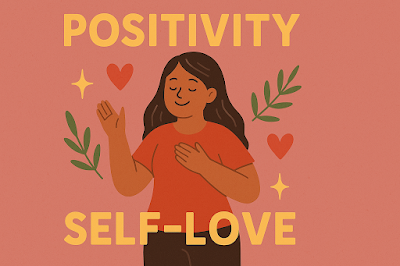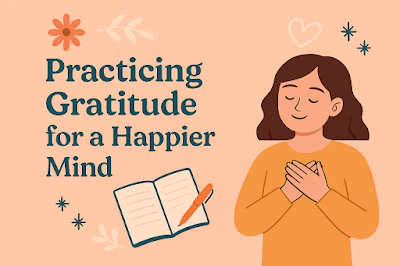Body Positivity and Self-Love: Embracing a Healthy Lifestyle Naturally
In today’s world, social media often portrays unrealistic beauty standards, making many people feel inadequate about their bodies. Body positivity and self-love are crucial practices that promote mental well-being and a truly healthy lifestyle. Instead of striving for perfection, embracing yourself naturally helps you live a happier, healthier life.
What is Body Positivity?
Body positivity means accepting your body as it is, appreciating its uniqueness, and not comparing yourself to others. It encourages self-confidence and breaks the toxic cycle of body shaming. Body positivity is not about ignoring health but about loving yourself enough to care for your mind and body in a balanced way.
Why is Self-Love Important for a Healthy Lifestyle?
Self-love is the foundation of a healthy lifestyle. When you practice self-love:
🎀You nourish your body with healthy food choices naturally.
🎀You engage in exercise not as punishment but as self-care.
🎀You prioritise mental health, stress management, and adequate sleep.
🎀You set realistic health goals without harming your body or mind.
Tips to Practice Body Positivity and Self-Love Naturally
Here are practical and helpful tips to incorporate body positivity and self-love into your daily routine:
Appreciate Your Body’s Strength
Instead of criticising your appearance, focus on what your body can do – walking, working, hugging loved ones, and supporting you every day. This shift in mindset is powerful for mental health and a positive outlook.
Avoid Negative Self-Talk
Replace negative thoughts like “I look fat” with positive affirmations such as “I am strong, I am healthy, and I am enough.” This practice naturally builds confidence and inner peace.
Follow a Healthy Lifestyle Plan
Eat balanced meals, stay hydrated, and engage in regular exercise like yoga, walking, or dance, which boost mood and body confidence. Remember, fitness is for strength and health, not just looks.
Surround Yourself with Positivity
Follow social media pages, people, and groups that promote body positivity, healthy lifestyle tips, and realistic wellness advice. Unfollow accounts that make you feel insecure or worthless.
Practice Self-Care Daily
Take time to pamper yourself naturally – skincare, relaxing baths, journaling, meditation, or reading. These activities reduce stress and enhance your self-worth.
Wear Clothes that Make You Feel Good
Dress comfortably and stylishly according to your taste, not trends. Wearing what makes you feel confident naturally improves your mood and body image.
Stop Comparing Yourself to Others
Everyone has a different journey, metabolism, genetics, and lifestyle. Comparing yourself with others steals joy and peace. Focus on your growth and health goals instead.
The Link Between Body Positivity and a Healthy Lifestyle
When you practice body positivity, you are motivated to live a healthy lifestyle naturally without fad diets or extreme workouts. You choose nutritious foods, move your body joyfully, and prioritise mental health. This balanced approach supports long-term wellness.
FAQs on Body Positivity and Self-Love
Q1. How can I start loving my body?
Start by listing things you like about your body and repeating positive affirmations daily. Practice gratitude for your health and strengths.
Q2. Can I be body positive and still want to lose weight?
Yes. Body positivity is about accepting and loving yourself now while working towards any health goals without self-hate or toxic dieting.
Q3. Does self-love improve mental health?
Absolutely. Self-love reduces stress, anxiety, and depression. It helps you set boundaries, care for yourself, and build healthier relationships.
Final Thoughts
Body positivity and self-love are essential for living a healthy lifestyle naturally. Accept yourself as you are while working towards better health and inner happiness. Remember, your worth is not defined by your body size but by your kindness, strength, and resilience.
Embrace yourself fully today and see how your life transforms with positivity and self-love.














